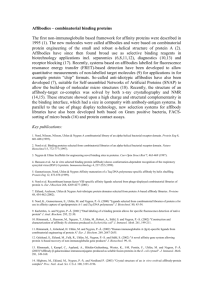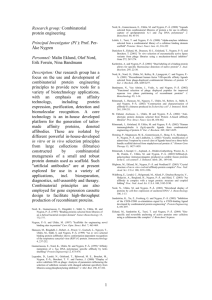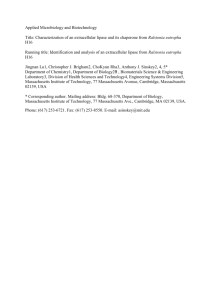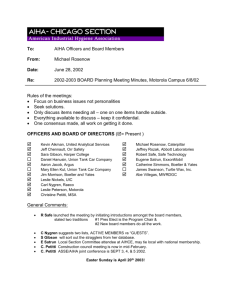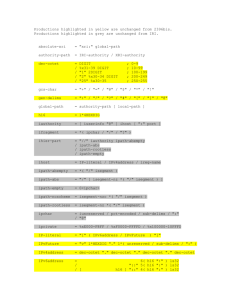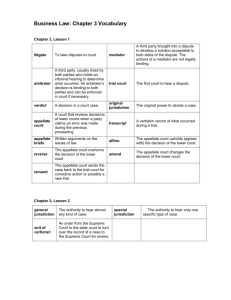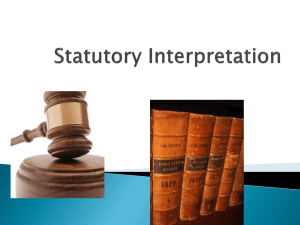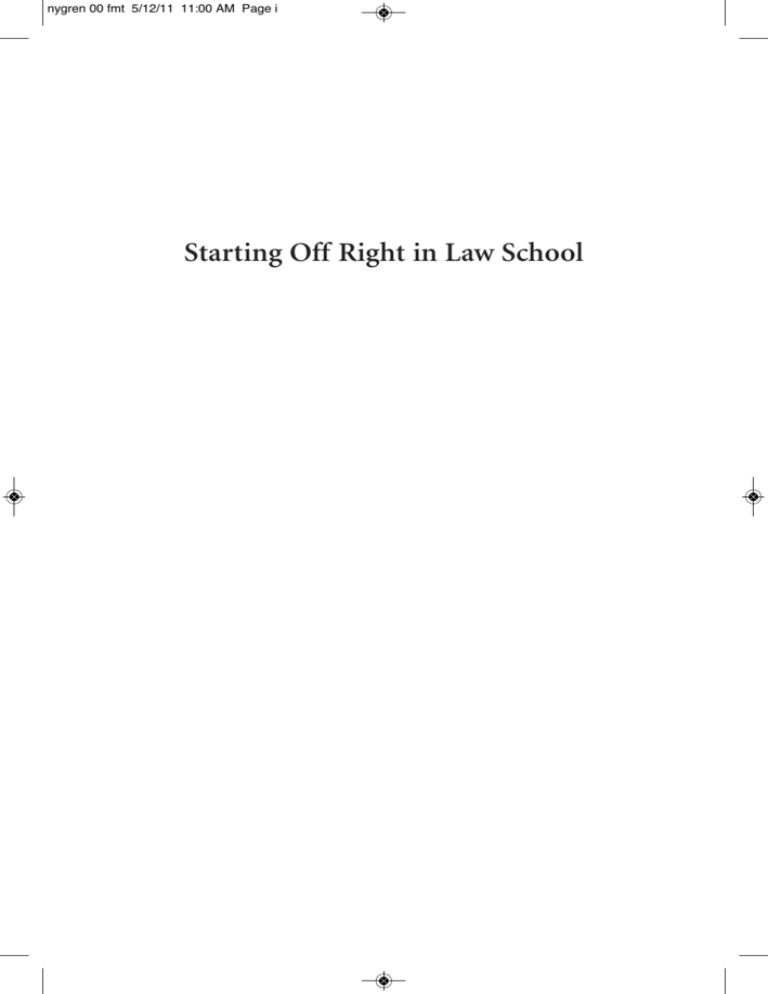
nygren 00 fmt 5/12/11 11:00 AM Page i
Starting Off Right in Law School
nygren 00 fmt 5/12/11 11:00 AM Page ii
nygren 00 fmt 5/12/11 11:00 AM Page iii
Starting Off Right in Law School
second edition
Carolyn J. Nygren
Carolina Academic Press
Durham, North Carolina
nygren 00 fmt 5/12/11 11:00 AM Page iv
Copyright © 2011
Carolyn J. Nygren
All Rights Reserved
Library of Congress Cataloging-in-Publication Data
Nygren, Carolyn, 1942Starting off right in law school / Carolyn J. Nygren. -- 2nd ed.
p. cm.
ISBN 978-1-59460-825-4 (alk. paper)
1. Law--Study and teaching--United States. I. Title.
KF273.N97 2011
340.071'173--dc22
2011013005
Carolina Academic Press
700 Kent Street
Durham, NC 27701
Telephone (919) 489-7486
Fax (919) 493-5668
www.cap-press.com
Printed in the United States of America
nygren 00 fmt 5/12/11 11:00 AM Page v
Contents
Introduction to the First Edition
Why I Wrote This Book
1. To provide information about the legal system
2. To provide information about the study skills necessary
for success
Why You Should Read This Book
What You Should Know About the Book
The “Voices”
The Topic
The Simplified Explanations
Introduction to the Second Edition
Acknowledgment
1 · What Lawyers Do When a Client Calls
Background for This Chapter
Court
Statute
Judge-made law
Stare decisis and precedent
Plaintiff and defendant
Cause of action
Defense
Jurisdiction
Reporter
Uniform Commercial Code (UCC)
The Filet of Flounder with Lobster Sauce
Telling the story
Deciding to sue
v
vii
vii
vii
vii
viii
viii
viii
viii
ix
xi
xiii
3
3
3
4
4
4
5
5
5
5
6
6
7
7
8
nygren 00 fmt 5/12/11 11:00 AM Page vi
vi
CONTENTS
Consulting the statutes
Reading a summary
Consulting the cases
Webster v. Blue Ship Tea Room, Inc.
Advising Margaret Fox
Drafting the Complaint
Advising The Fearless Flounder
8
9
10
15
17
18
2 · What Happens During Trial
Background for this Chapter
Motion
Brief
Appeal
Basis of appeal
Stages of Trial
1. Motion to Dismiss
2. Answer
3. Motion for Judgment on the Pleadings
If Doris Becker filed a motion to dismiss
3. Discovery
4. Motion for Summary Judgment
5. Trial
6. Motion for Judgment as a Matter of Law (formerly
“motion for a directed verdict”)
7. Jury Deliberations
8. Renewal of Motion for Judgment after Trial (formerly
“motion for judgment notwithstanding the verdict” — JNOV)
9. Motion for New Trial
19
19
19
19
19
19
20
20
21
22
22
22
23
24
3 · What Lawyers Read
Statutes
Cases
1. Procedural history of the case
2. The basis for the appeal — the procedural issue
3. The legal theory or theories under which the case has
been begun
4. The element of the cause of action at issue in the case — the
substantive issue
5. Facts in the dispute
29
29
29
30
30
25
26
26
26
31
31
32
nygren 00 fmt 5/12/11 11:00 AM Page vii
CONTENTS
vii
6. The court’s decision and its reasoning
Example — Webster v. Blue Ship Tea Room, Inc.
Webster v. Blue Ship Tea Room, Inc.
33
33
34
4 · What Trial Courts Do
Element of Sale — State Trial Court
Gunning v. Small Feast Caterers, Inc.
Element of Merchantability — Federal Trial Court
Yong Cha Hong v. Marriott Corporation
Diversity jurisdiction
The Erie Doctrine
Summary judgment
Importance of the case
Reading the case
Certified Question—State
Cardozo v. True
39
40
40
42
42
46
46
47
48
49
49
49
5 · What Juries Do
Motion for Summary Judgment
Motion for Judgment as a Matter of Law
Appellate court affirms action of trial judge and keeps case
from jury
Appellate court reverses action of trial judge and sends the
case to the jury
Renewal of Motion for Judgment after Trial (JNOV)
Appellate court reverses the decision negating the verdict
of the jury
Judge as fact finder
55
56
57
61
66
6 · What Appellate Courts Do
Appellate Courts Set Precedent
Williams v. Braum Ice Cream Stores, Inc.
Importance of the case
Appellate Courts Assume Precedent
O’Dell v. DeJean’s Packing Co., Inc.
Importance of the case
Appellate Courts Follow Precedent
Tenth District
Thompson v. Lawson Milk Company
69
69
70
72
72
73
78
78
79
79
57
59
61
nygren 00 fmt 5/12/11 11:00 AM Page viii
viii
CONTENTS
Eighth District
Ruvolo v. Homovich
Parianos v. Bruegger’s Bagel Bakery, 2005-Ohio-113
7 · What Courts of Last Resort Do
Kolarik v. Cory International Corporation
Conflict in the Jurisdictions
1. Mix v. Ingersoll Candy Co., Supreme Court of California,
1936, 6 Cal. 2d 674, 59 P.2d 144
2. Evart v. Suli, Court of Appeal, Second District, Division 5,
California, 1989, 211 Cal. App. 3d 605, 259 Cal Rptr. 535
3. Mexicali Rose v. Superior Court; Clark, Real Party in Interest,
Court of Appeal, First District, Division 4, California, 1989,
225 Cal. App. 3d 1410, 262 Cal. Rptr. 750
4. Mexicali Rose v. Superior Court; Real Party in Interest,
Supreme Court of California, 1992, 822 P.2d 1292,
4 Cal. Rptr.2d 145
Specifically Changing Precedent
Goodman v. Wenco Foods, Inc.
Clarifying a Precedent
Phillips v. Town of West Springfield
82
82
84
87
87
90
90
91
91
92
92
93
96
96
8 · Practice
1. Jurisdiction
2. Precedent
3. Like Facts
4. Definitions and Recipes
Foss v. Carpenter Enterprises, Inc.
Feingold v. Town Lyne House, Inc.
O’Brien v. Dora Ferguson Catering
Williams v. Roche Brothers Supermarkets, Inc.
Jackson v. Bumble Bee Seafoods, Inc.
99
99
99
100
100
100
103
107
111
114
9 · Reading Cases in Casebooks
1. Read something about the subject matter of the chapter
or section before you read any cases
2. Read whole sections of chapters before you take notes on
any case
3. Don’t agonize over any case
117
118
119
120
nygren 00 fmt 5/12/11 11:00 AM Page ix
CONTENTS
4. Don’t take too many notes
Merchant
Wentzel v. Berliner
Sale
Levondosky v. Marina Associates
Merchantability
Mix v. Ingersoll Candy Co.
Carl v. Dixie Co.
Nadeau v. Bostonian Fishery, Inc.
ix
120
122
122
123
123
126
126
129
130
10 · Law School Exams
The Basics
The Complications
135
135
143
11 · Where You Are Now
153
nygren 00 fmt 5/12/11 11:00 AM Page x
nygren 00 fmt 5/12/11 11:00 AM Page xi
Introduction to the First Edition
Why I Wrote This Book
1. To provide information about the legal system
Law schools do not require that their entering students have any specific
knowledge of the law. Unfortunately, in order to understand their assignments
for the first day of law school, students need to be familiar with fundamental
legal principles and legal terminology as well as know information about the
court systems and the trial and appellate processes. Students at most law schools
must spend a great deal of time during the first semester trying to fill in the gaps
in their basic knowledge at the same time that they are trying to cope with
their course work. No wonder that most are exhausted and discouraged.
Students do not need in-depth knowledge of the legal system to be ready for
the first day of law school. There are three years to learn the details. They just
need the basics. The first reason I wrote this book is to provide those essential
basics.
2. To provide information about the study skills necessary
for success
When I first started working at law schools, I was hired to work in the Spring
with students who had not done well on first semester exams. I soon realized
that most of the students had worked very hard and had learned enough law
to do well. What they hadn’t learned was that law school exams are different
from any other exams they had taken and doing well requires some specific
study and exam preparation techniques. Unless told otherwise, students who
have had success in other academic settings have no reason to believe that they
xi
nygren 00 fmt 5/12/11 11:00 AM Page xii
xii
INTRODUCTION
need to study differently in law school. Sometimes it is not until they do poorly
on first semester exams that they understand that they need help.
Most students can be successful if they know what preparation is required.
Therefore, the second reason for writing this book is to tell students about
study and exam preparation techniques before their first exams. All students
should know how to demonstrate what they have learned.
Why You Should Read This Book
First year success is more important to law students than to students in any
other graduate program. Selection for law review is often dependent on grades.
Law firms are usually conservative and often rely almost exclusively on grades
to determine to whom to make an offer. Therefore, some very promising students are cut off from opportunities simply because they do not know how to
succeed in law school. This book contains what you need to know so that you
can do well enough in law school to achieve your goals.
What You Should Know About the Book
The “Voices”
This book is based on a course I taught for many years. The chapters that
contain basic law related information rarely include the word “I.” However, the
chapters that contain study and exam preparation techniques are based on my
experience in teaching and working with individual students. In these chapters I often refer to suggestions that have worked for me and others, and I also
include samples from the course.
The Topic
When you read the book, you may be surprised by the fact that the events
that resulted in the cases being tried are rather mundane. All of the cases you
will read are about people who have been injured by something in food, either in their restaurant meals or in processed food. You will read about people who have been injured by a bone in fish chowder, a bone in a fish fillet,
and even a pearl in canned oysters. The injured parties are all suing the merchants who sold them the food under one legal theory found in the Uniform
Commercial Code called the implied warranty of merchantability.
nygren 00 fmt 5/12/11 11:00 AM Page xiii
INTRODUCTION
xiii
You should know that the case at the heart of this book (Webster v. Blue Ship
Tea Room, Inc.) created problems for generations of Massachusetts lawyers as
you will see in Chapter One. In 1989 the Supreme Judicial Court decided a
case which clarified the unresolved issues in Webster. However, this action by
the court did not decrease the effectiveness of Webster as a teaching tool nor
its appeal to law school teachers and students.
The reason I have chosen such an easy subject is that I want you to be able
to concentrate on learning about the law. All of us have eaten in restaurants and
consumed canned or frozen food from the supermarket. Although the subject
matter is easy, the legal concepts in the cases are not, and there are many scholarly articles written about what one such article calls “chicken bone law.”
The Simplified Explanations
Some legal concepts may seem clear in this book because they are introduced in only one area. In your first year courses, you may find that they are
quite complex. However, it is impossible to understand the complexities at the
beginning of your law school experience. Now you need a basic understanding of legal concepts and vocabulary so that you can have the foundation upon
which to build a more sophisticated understanding. This book is meant to give
you enough of an introduction to the law and law school so that you can begin
speaking and writing like a member of the legal community immediately.
nygren 00 fmt 5/12/11 11:00 AM Page xiv
nygren 00 fmt 5/12/11 11:00 AM Page xv
Introduction to the Second Edition
There was little from the first edition of this book that I wanted to change.
There was, however, much that I wanted to add. Since the first edition was
published, I have been a full time faculty member at three different law schools,
teaching doctrinal courses and legal writing in addition to conducting academic support sessions. It became clear to me that first year law students often
didn’t realize that the case reading to prepare for exams is different from the
case reading to prepare for writing a legal memo or brief. Many students used
the same technique for both, but the technique served neither purpose well.
This book is about 50% longer than the first edition because I have tried to
prepare students for legal writing as well as exams. There are now chapters on
trial courts, juries, appellate courts and courts of last resort to help students
understand the role each tier of the court system plays. This is very important
in a legal writing course, but it is often irrelevant in a doctrinal course. I hope
this new edition will give students the background they need to start off right
in law school.
xv
nygren 00 fmt 5/12/11 11:00 AM Page xvi
nygren 00 fmt 5/12/11 11:00 AM Page xvii
Acknowledgment
I am greatly indebted to Martha Siegel for her skill in editing and for the
wisdom of her suggestions.
xvii

